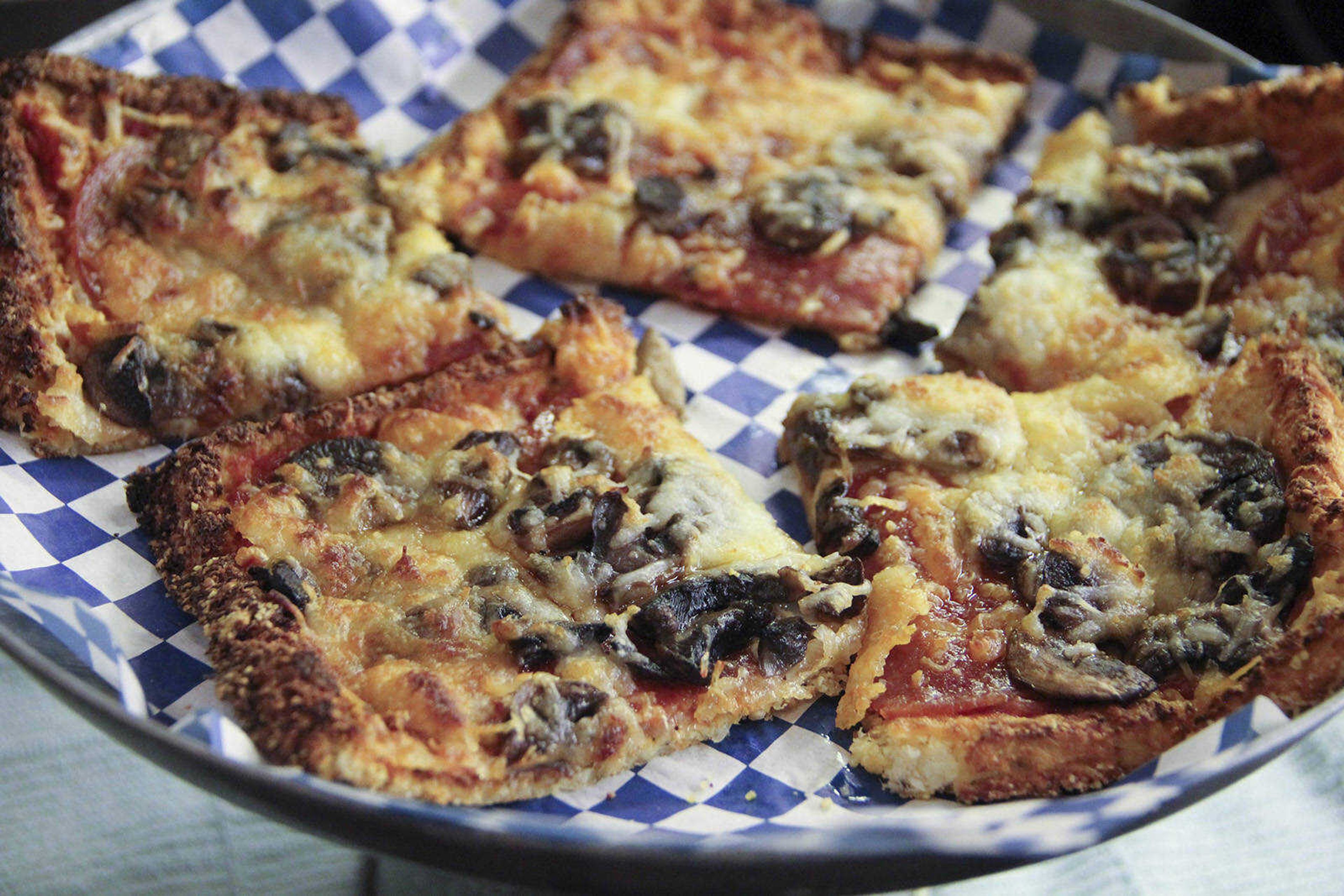For pizza crust with a big dose of vitamins, try cauliflower
Cauliflower is a wonder-veggie. No longer relegated to boiling and covering with a bright orange cheese sauce (sorry, Mom), cauliflower is stepping out in the place of starch like rice in stir-fries or instead of wheat flour in pizza dough. Cauliflower is mild, so it takes on whatever flavors you throw at it, which helps it be the convincing chameleon that it is. ...
Cauliflower is a wonder-veggie. No longer relegated to boiling and covering with a bright orange cheese sauce (sorry, Mom), cauliflower is stepping out in the place of starch like rice in stir-fries or instead of wheat flour in pizza dough.
Cauliflower is mild, so it takes on whatever flavors you throw at it, which helps it be the convincing chameleon that it is. Cauliflower is as healthy as our moms told us, providing a hefty dose of vitamins, including C, K, B6 and folate, as well as smaller doses of other vitamins and minerals, plus filling protein and fiber. All in about 25 calories per cup.
So, it's a worthy vegetable, and now that it is available in "riced" form in mainstream grocery stores across the country, it's time to take a look if you haven't already. Let's start with pizza crust. Steamed, riced cauliflower is mixed with a binder (usually egg and cheese), and then shaped into a pizza crust shape, baked and then topped with traditional pizza toppings. Bake up a few of these crusts and keep in the freezer for last minute pizza night that is healthier than takeout.
Since my daughter is gluten-intolerant, I've been making pizza crust for years with cauliflower, resulting in a few key pieces of advice from the trenches. The biggest challenge with cauliflower crust is keeping it together, since there is no stretchy gluten working for you.
But, no problem, if you follow my tips: First, once you cook the cauliflower, make sure to squeeze out as much moisture as possible. Excess water will keep the crust from staying together. In fact, I like to go a tiny step further and add just a little bit of absorbent flour - just a tablespoon or two of coconut or oat flour make a big difference.
Next tip: bake the crust and flip it over before adding any toppings. If you aren't flipping it, you can't get the firm crusty texture to form, and that really helps the crust taste and feel pizza-like.
Final tip: make smaller pizza crusts instead of one big huge one. They are just easier to manage and keep intact. Top your pizza crust with whatever toppings you like -- lots of cheese and meat if you're simply eating low-carb, or load up with roasted veggies and a light sprinkling of part-skim mozzarella if you want to stay low-cal. But for the crust, follow my recipe for the no-fail step-by-step.
Foolproof Cauliflower Pizza Crust
Start to finish: 40 minutes
Servings: 4 small pizza crusts, 1 per serving
- 4-5 cups "riced" cauliflower (buy it riced, or pulse in food processor until rice-sized)
- 1 egg
- 1/2 cup grated parmesan cheese
- 1/2 cup grated part-skim mozzarella cheese
- 1 1/2 teaspoons granulated garlic
- 2 teaspoons Italian seasoning
- 2 tablespoons of coconut flour (or other absorbent flour, such as oat or quinoa flour)
- Fine cornmeal for sprinkling, optional
- Salt and pepper
Heat oven to 400 degrees. Place the riced cauliflower in a microwave-safe dish with 2 tablespoons of water, cover and cook in microwave for 4 to 5 minutes, or until tender but not mushy. Remove from microwave, drain off water, gently pressing out excess moisture with a spoon, and cool.
Meanwhile, in a large bowl, whisk the egg with the cheeses, garlic and Italian seasoning. Place the cooled cauliflower in several paper towels, or in a thin clean dish towel, and gently but firmly squeeze out excess moisture. (You may be surprised by how much liquid you can squeeze out.)
Add the squeezed cauliflower to the egg and cheese mixture. Sprinkle in the coconut flour, salt and pepper and mix well. Mixture will not stick together like regular dough.
Line a baking sheet with parchment paper and spray with nonstick spray. Divide the dough into 3 or 4 mounds, and gently shape them into pizza crusts, doing your best to push the dough together to make clean edges. Bake until dark golden brown, about 20 minutes. Remove from the oven and let cool for 5 to 10 minutes. Flip with a spatula. If using, sprinkle the bottom of the sheet with a little cornmeal when you flip the crusts.
Top the crusts with any sauce, cheese, toppings and bake until melted, about 10 more minutes.
Tip: You can bake extra crusts without toppings and freeze them for future use.
Nutrition information per serving: 157 calories; 70 calories from fat; 8 g fat (4 g saturated; 0 g trans fats); 70 mg cholesterol; 495 mg sodium; 12 g carbohydrate; 4 g fiber; 3 g sugar; 11 g protein.
Connect with the Southeast Missourian Newsroom:
For corrections to this story or other insights for the editor, click here. To submit a letter to the editor, click here. To learn about the Southeast Missourian’s AI Policy, click here.









